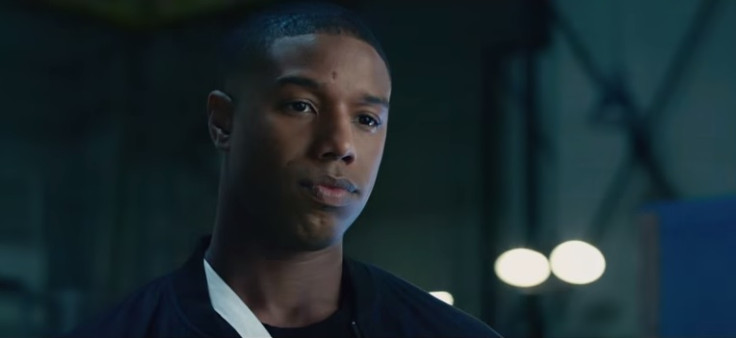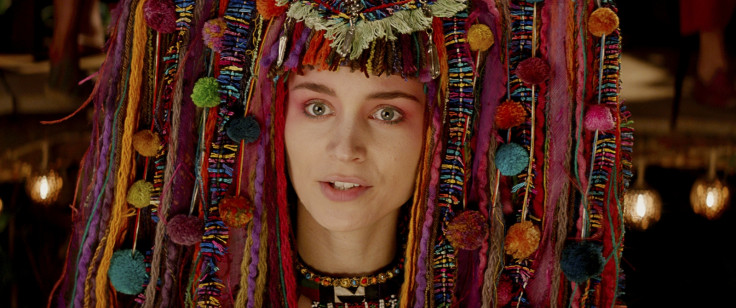Whitewashing and gender-swapping in movies: Why we need new characters and not new actors

This year, the subject of 'whitewashing', gender-swapping and the general notion of changing distinguishable aspects of already existing characters when they are presented again in new movies, seems more relevant than ever. What with Michael B Jordan cast as Johnny Storm in Fantastic Four, Rooney Mara portraying Tiger Lily in Pan and both movies being released later this year, the concept of reinventing a character in a different way than they were originally presented has almost become somewhat of a trend.
It seems to create the most controversy within the comic book world, which is understandable given their presence in mainstream pop culture and their long-standing, ever-faithful fandoms. Additionally, most comics are based in the realms of fantasy, which makes it even easier to come up with a reason why certain characters have so obviously changed.
We don't need new actors, we need more characters.
Marvel Comics creator Stan Lee recently spoke out on the subject when it was revealed via leaked Sony emails that there are a restrictive set of rules when it comes to the preservation of the character of Spider-Man, stating that both his ethnicity and sexuality have to remain unchanged in any future representation.
A notion that Lee himself agrees with. "I wouldn't mind if Peter Parker had originally been black, a Latino, an Indian or anything else that he stay that way," he told Newsarama. "But we originally made him white. I don't see any reason to change that.
"It has nothing to do with being anti-gay, or anti-black, or anti-Latino, or anything like that," he said. "Latino characters should stay Latino. The Black Panther should certainly not be Swiss. I just see no reason to change what has already been established when it's so easy to add new characters. I say create new characters the way you want to. Hell, I'll do it myself."
And in my opinion, therein lies the simple answer. I don't disagree with Lee, I actually think most of the time, every aspect of a character is what makes them and when you start changing bits, they become something other than themselves. But Hollywood has become so desperate to create an all-encompassing, politically correct image that it is recycling old characters and changing them rather than creating fresh characters to put on screen and embody every kind of person on this planet. Something the industry really needs to start doing.
Marvel seem to be the leading force when it comes to (albeit slowly) pushing those boundaries of having an all-male, all-white superhero universe on screens, as throughout the years it has introduced characters such as Agent Carter and The Falcon, scheduled upcoming pictures Captain Marvel and Black Panther, and recently even revealing plans for a female Thor.
But why create a female Thor when there are so many other interesting female characters that could be brought to life in a motion picture instead? Besides, if Marvel's treatment of Black Widow in Avengers is anything to go by, female Thor will never turn out to be the epic powerhouse that we all hope she actually would be if she was ever represented on screen.
Granted, Thor Girl is an already existing character within the comics but in cinema, we already have a Thor and any character derivative of him is always going to be compared to the original. For me, there's nothing progressive about changing an already existing character to female or to black, when they are forever going to be associated with that odd change from then on.

Whitewashing in Hollywood
Meanwhile, outside of the superhero universe, Cameron Crowe came under fire recently when he was accused of 'whitewashing' the island of Hawaii in not-yet-released Aloha. This could be considered somewhat of a cloudy accusation given that Crowe actually penned the picture himself and therefore invented the characters, (caucasian people CAN move to Hawaii right?), but when you learn that Emma Stone's character Allison Ng is supposed to be a quarter Chinese and a quarter Hawaiian, you do start to agree with the naysayers.
In instances like this, you can't help but think that the only reason certain actors are taken on board are because of the enlarged amount of custom that their names will bring to the box-office. Movies need to make money, I understand that, but you can't desperately try and claim that someone is of a different descent than what they clearly are and not expect to get a bit of backlash for it. That doesn't count as inclusion, it just looks like you're greatly underestimating your audience's intelligence.
A similar uproar occurred when the Oscar-nominated film The Impossible was released way back in 2012, when people started realising that the family in which the movie was based on were the polar opposite to the actors cast when it came to looks. The real family who's tragic story the film was depicting were all dark-haired with tanned skin and had Spanish roots, whereas the Bennett family within the movie were all fair and unmistakably British.
Arguments were made that the film-makers did this to make the empathy shared by viewers as wide-spread as possible, but no-one can know for sure as to whether that was really the reason or simply whether Naomi Watts and Ewan McGregor were the best actors to carry such an emotional movie.
Are there exceptions to the rule?
Rooney Mara being cast as Native American Tiger Lily in the upcoming retelling of the well-known story of Peter Pan has also come under scrutiny as of late. But what if an existing character was actually incredibly racist on reflection and you're trying to break those stereotypes?
Whilst I understand what the film-makers might have been trying to do here – by completely discounting the origins of the character they obviously hoped to make it a moot point, but I can't help but think it would have been much more effective to just adapt the character into a more accurate and intelligent depiction of a Native American, completely devoid of those harmful clichés, rather than just ignore it all together.
In an industry where reboots and remakes are becoming more and more common, it's clear that some writers, directors and studio heads were always going to start putting their spin on an already existing story. But we could avoid the upset of disappointing existing fans of an established character and just as importantly excluding an under-represented community by writing NEW characters rather than rehashing old ones.
© Copyright IBTimes 2025. All rights reserved.






















